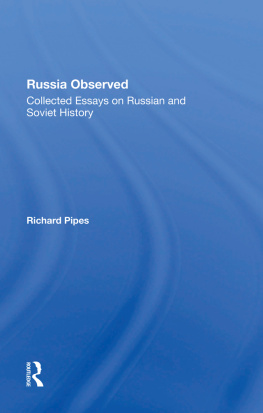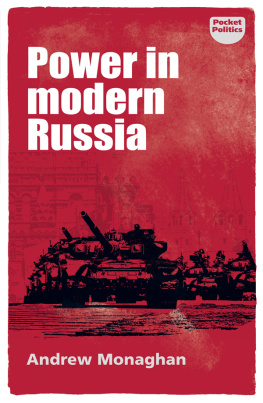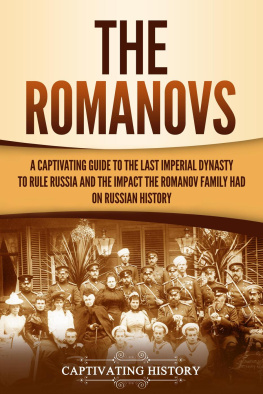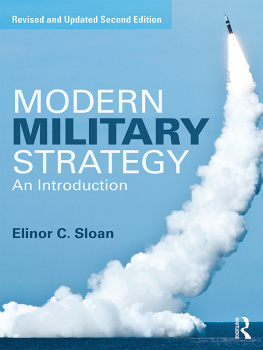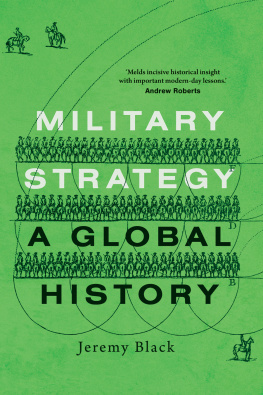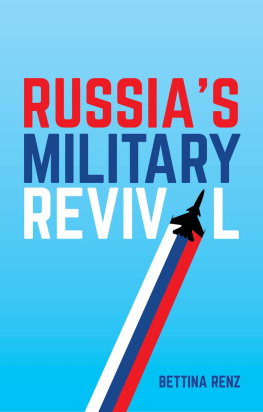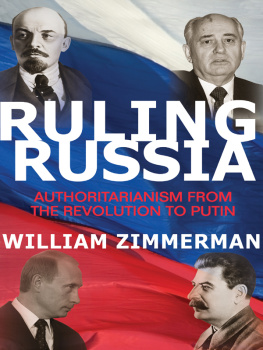William C. Fuller - Strategy and Power in Russia 1600-1914
Here you can read online William C. Fuller - Strategy and Power in Russia 1600-1914 full text of the book (entire story) in english for free. Download pdf and epub, get meaning, cover and reviews about this ebook. publisher: Free Press, genre: History. Description of the work, (preface) as well as reviews are available. Best literature library LitArk.com created for fans of good reading and offers a wide selection of genres:
Romance novel
Science fiction
Adventure
Detective
Science
History
Home and family
Prose
Art
Politics
Computer
Non-fiction
Religion
Business
Children
Humor
Choose a favorite category and find really read worthwhile books. Enjoy immersion in the world of imagination, feel the emotions of the characters or learn something new for yourself, make an fascinating discovery.

- Book:Strategy and Power in Russia 1600-1914
- Author:
- Publisher:Free Press
- Genre:
- Rating:4 / 5
- Favourites:Add to favourites
- Your mark:
- 80
- 1
- 2
- 3
- 4
- 5
Strategy and Power in Russia 1600-1914: summary, description and annotation
We offer to read an annotation, description, summary or preface (depends on what the author of the book "Strategy and Power in Russia 1600-1914" wrote himself). If you haven't found the necessary information about the book — write in the comments, we will try to find it.
Strategy and Power in Russia 1600-1914 — read online for free the complete book (whole text) full work
Below is the text of the book, divided by pages. System saving the place of the last page read, allows you to conveniently read the book "Strategy and Power in Russia 1600-1914" online for free, without having to search again every time where you left off. Put a bookmark, and you can go to the page where you finished reading at any time.
Font size:
Interval:
Bookmark:
Thank you for downloading this Free Press eBook.
Join our mailing list and get updates on new releases, deals, bonus content and other great books from Free Press and Simon & Schuster.
C LICK H ERE T O S IGN U P
or visit us online to sign up at
eBookNews.SimonandSchuster.com
We hope you enjoyed reading this Free Press eBook.
Join our mailing list and get updates on new releases, deals, bonus content and other great books from Free Press and Simon & Schuster.
C LICK H ERE T O S IGN U P
or visit us online to sign up at
eBookNews.SimonandSchuster.com
Copyright 1992 by William C. Fuller, Jr.
All rights reserved. No part of this book may be reproduced or transmitted in any form or by any means, electronic or mechanical, including photocopying, recording, or by any information storage and retrieval system, without permission in writing from the Publisher.
The Free Press
A Division of Macmillan, Inc.
866 Third Avenue, New York, N. Y. 10022
www.SimonandSchuster.com
Maxwell Macmillan Canada, Inc.
1200 Eglinton Avenue East
Suite 200
Don Mills, Ontario M3C 3N1
Macmillan, Inc. is part of the Maxwell
Communication
Group of Companies.
Printed in the United States of America
Library of Congress Cataloging-in-Publication Data
Fuller, William C.
Strategy and power in Russia, 16001914 / William C. Fuller, Jr.
p. cm.
ISBN 0-68-486382-0
ISBN 978-1-4391-0577-1
1. Soviet UnionHistory, MilitaryTo 1801. 2. Soviet UnionHistory, Military18011917. I. Title.
DK51.F85 1992
947dc20
9135871
CIP
To Sarah
I have incurred a substantial debt to all of the institutions and individuals who have helped me in the writing of this book. Most of the research was accomplished in the following libraries and archives: Widener Library, Harvard University; the Lenin Library, Moscow; the Naval War College Library, Newport, Rhode Island; the Central State Archive of Military History (TsGVIA), Moscow; the Central State Archive of the October Revolution (TsGAOR), Moscow; and the Archive of the Foreign Policy of Russia (AVPR), Moscow. I would like to thank the librarians and staffs of all of them for the courteous assistance extended to me.
I am also grateful to those organizations, colleges, and universities that contributed to the support of my research. They include Harvard Universitys Russian Research Center, the International Research and Exchanges Board, The Smith Richardson Foundation, and the Naval War College Foundation. I must express most particular gratitude to the United States Naval War College. Although I began work on the manuscript long before I started to teach in Newport, in a very real sense this book has been shaped by my experience at that distinguished center for learning. The stimulation provided by students and colleagues, in addition to the encouragement given me by the leadership of the college, was simply indispensable to the writing of this work. The former Chairman of the Department of Strategy, Alvin Bernstein, was an unfailing source of advice and support. Valuable comments and penetrating questions came from Eliot Cohen, Stephen Rosen, George Baer, David Kaiser, Bradford Lee, Douglas Porch, Steven Ross, and Brian Sullivan. I would like to thank the three Naval War College presidents under whom I have servedAdmiral John Baldwin, Admiral Ronald J. Kurth, and Admiral Joseph C. Strasserfor fostering and sustaining an intellectual environment so conducive to scholarship.
Colleagues at other universities were also most helpful. Steven Schuker of Brandeis, William Wagner of Williams, Paul Kennedy of Yale, and Arthur Waldron of Princeton were kind enough to invite me to try out some of my ideas in lectures and seminars at their own institutions; I profited much from each of those opportunities. Other scholars took the time to provide critiques of all or part of the manuscript. Here I must express appreciation to Richard Pipes, Marc Raeff, David Jones, Mark von Hagen, and Jacob Kipp. Professors Daniel T. Orlovsky and Gregory Freeze provided me with particularly insightful readings of my text. I also would like to thank Professor Bruce Menning, who generously shared with me a copy of his book Bayonets Before Bullets prior to its publication. Finally, I must express my appreciation to Adam Bellow, my editor at the Free Press.
Until the October Revolution Russia adhered to the Julian calendar. This lagged eleven days behind Europes Gregorian calendar in the eighteenth century, twelve in the nineteenth, and thirteen in the twentieth. For this reason, in discussing Russias military and diplomatic relations with Europe I cite dates in both Old and New Styles. I have generally followed the transliteration system of the Library of Congress but for the omission of the hard sign (). Names of famous Russians are spelled in the manner by which they are most familiar to readers of English. Hence Nicholas I, not Nikolai I. I have also used the standard Soviet archival abbreviations: f. for fond or collection; op. for opis or catalogue; and d. for delo or file. Unless otherwise noted, all translations in this book are my own.
I t is perhaps best to begin by explaining what this book is not. It is not a comprehensive military history of Russia or an investigation of abstract Russian military theory, nor is it a study of what has been described as Russian strategic culture. An exhaustive treatment of Russias military past would have required not one volume, but an entire shelf. Russian military thought, while an important subject in its own right, is not my focus, concerned as I am with the realm of the practical. And the relationship between military theory and military practice, in tsarist Russia as in many other countries, was roughly similar to the relationship between political theory and politics. All too often a vast chasm intervened between them.
I make no claims for this book as an exposition of Russian strategic culture, either. Although this concept has acquired a certain vogue of late owing to the work of such people as Colin Grey and Jack Snyder, I do not find it appealing. To argue that there is (or was) one unitary Russian strategic culture is perforce to ignore or overlook exceptions, inconsistencies, competing traditions, and human agencythe very fabric of history. While some social scientists might find the concept of strategic culture congenial, because it can serve them as an analytic meatgrinder for reducing coarse and uneven historical reality to a smooth and homogeneous paste, historians have a duty to be wary of any technique that substitutes theoretical elegance for complex truth. The function of strategic culture analysis is also at odds with the Assuming past strategic culture as a constant, social scientists can invoke it to prophesy what current Soviet leaders are likely to do in the years ahead. Although one can correctly speak of a Russian military tradition, there is not now, nor was there ever, a uniform and immutable Russian strategic culturea fact that by itself ought to raise doubts about the value of such forecasts. Still further, while history can be properly used to illuminate the present and the possible course of the future, history is abused when invoked to justify sibylline pronouncements.
This book is an interpretative study of the ways in which tsarist statesmen and governments tried to employ force or the threat of force to achieve their political objectives over the roughly three hundred years from the founding of the Romanov dynasty in the early seventeenth century to the outbreak of World War I in 1914. It is therefore a study of high strategy as the great Prussian theorist Clausewitz defined itthat is, as the connection between military means and political ends. As such, it limns the Russian strategic tradition, discussing the ways in which that tradition adapted (and failed to adapt) to the challenges of geography, demographics, poverty, and technological change.
Next pageFont size:
Interval:
Bookmark:
Similar books «Strategy and Power in Russia 1600-1914»
Look at similar books to Strategy and Power in Russia 1600-1914. We have selected literature similar in name and meaning in the hope of providing readers with more options to find new, interesting, not yet read works.
Discussion, reviews of the book Strategy and Power in Russia 1600-1914 and just readers' own opinions. Leave your comments, write what you think about the work, its meaning or the main characters. Specify what exactly you liked and what you didn't like, and why you think so.

